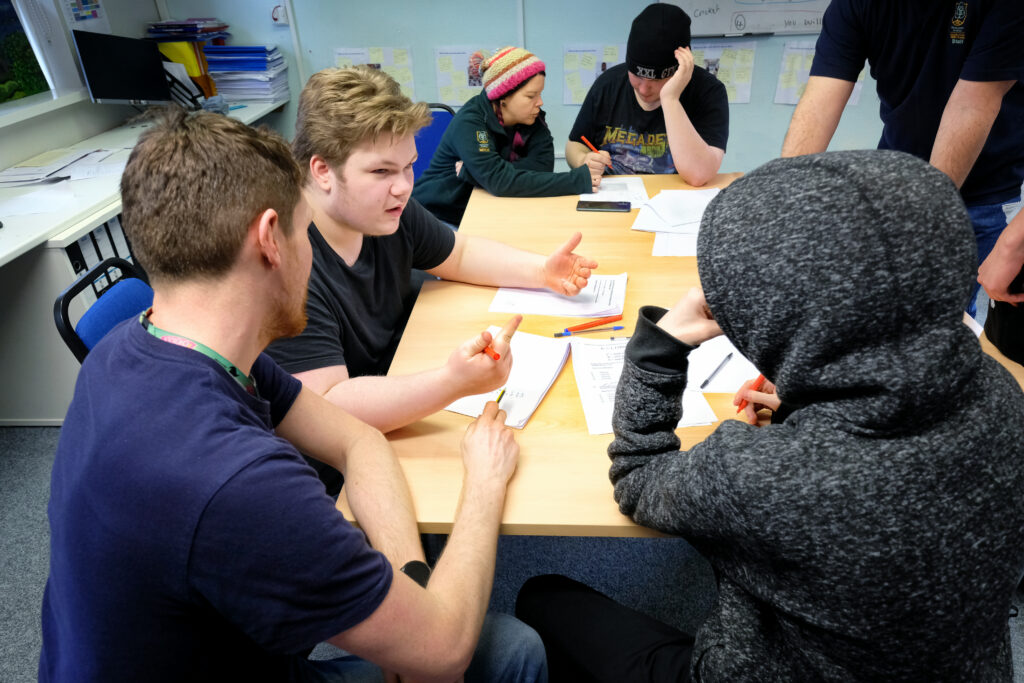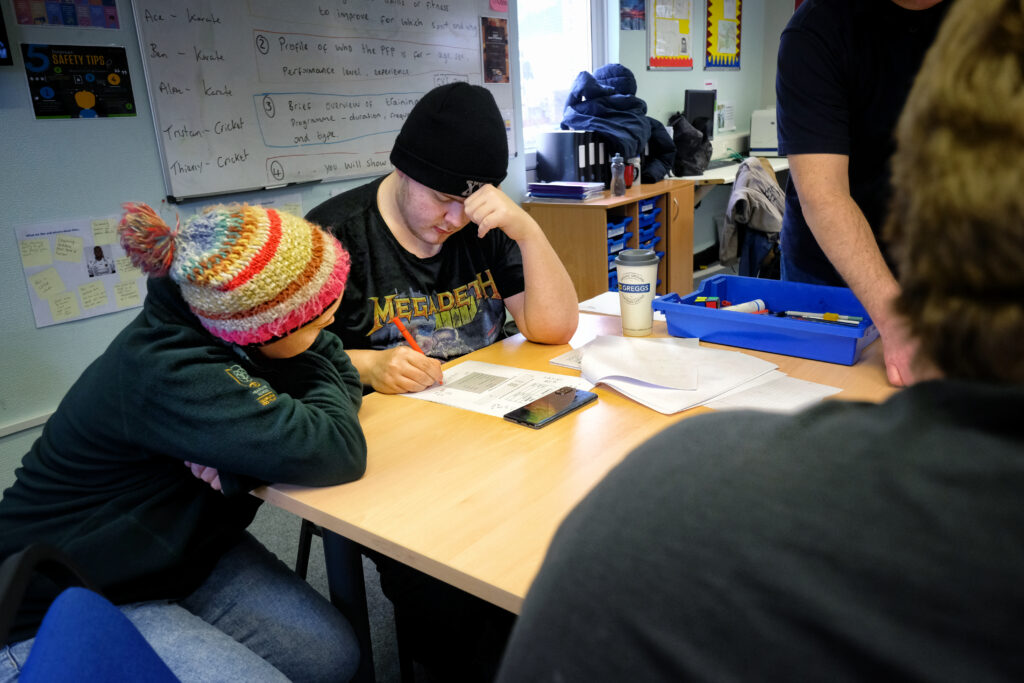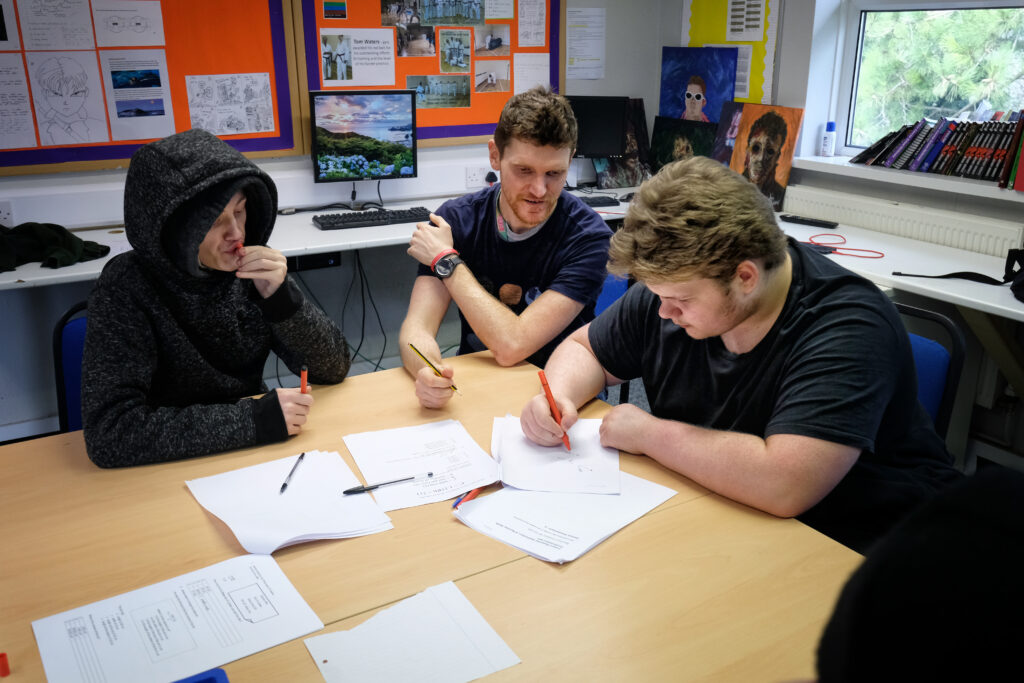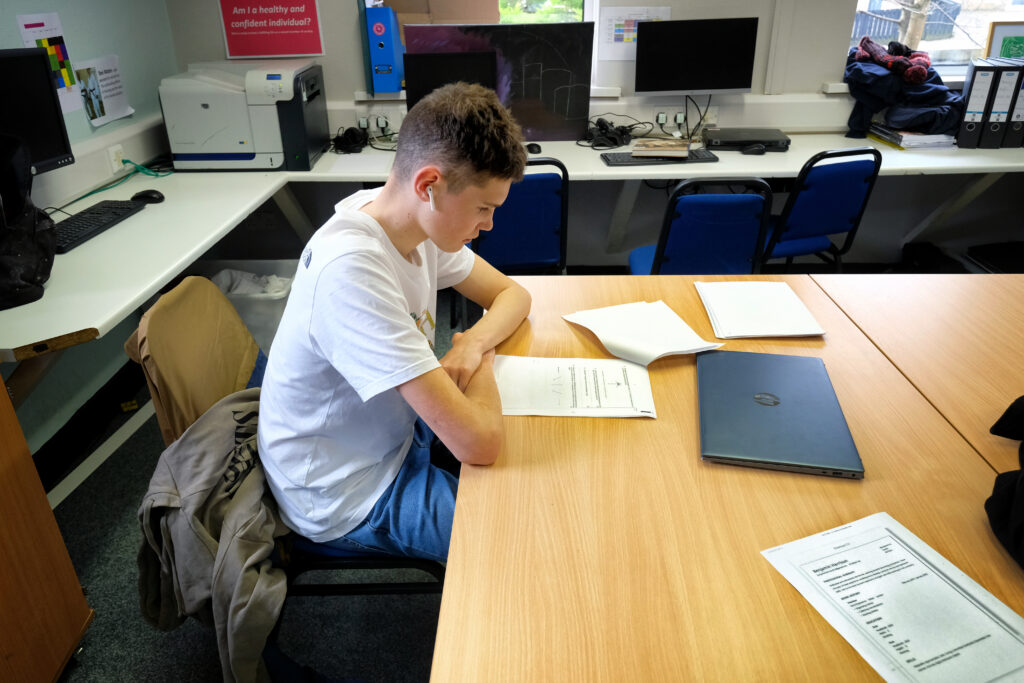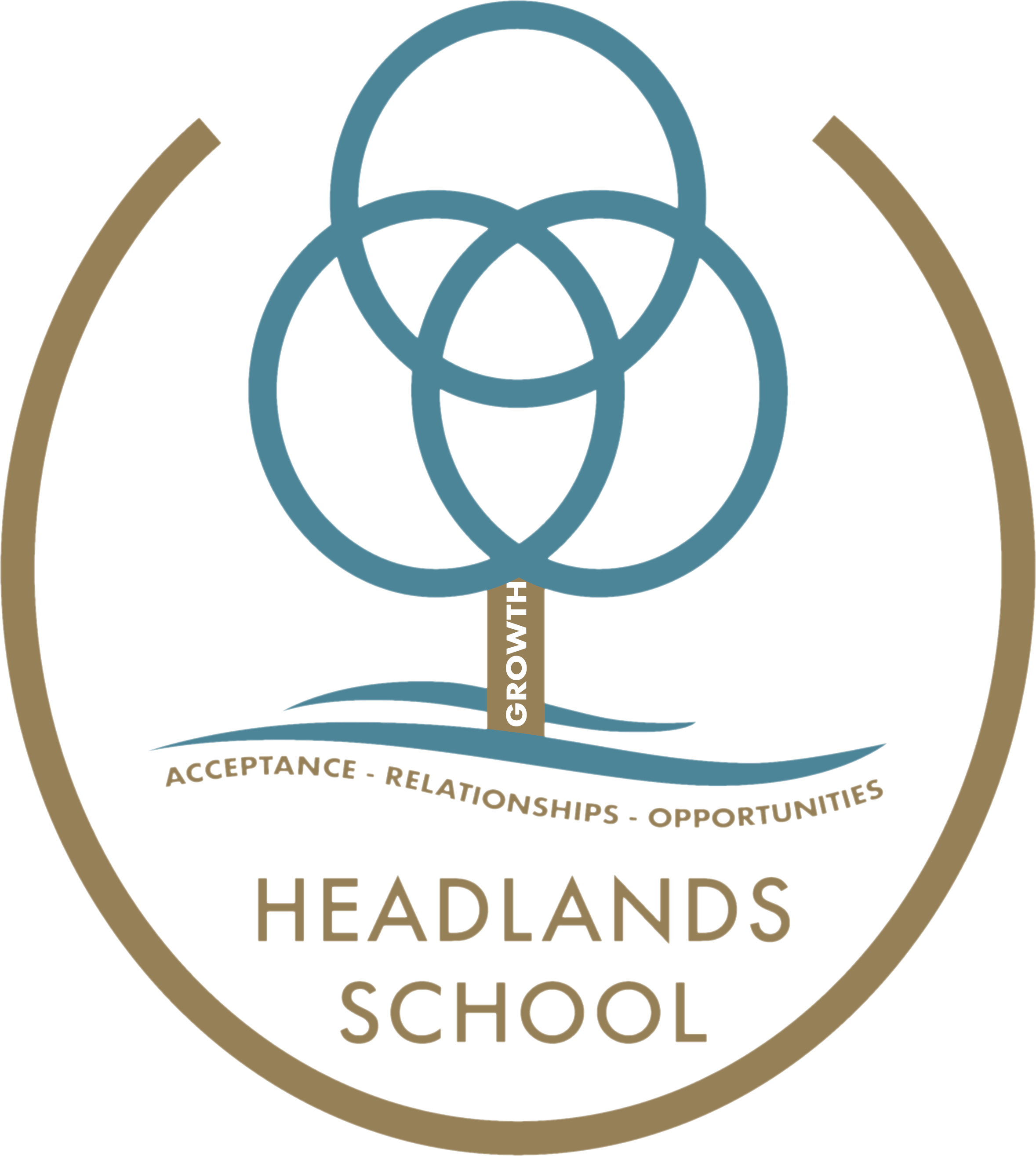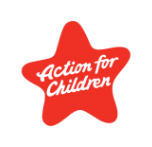What we understand about this stage of young people’s lives
The young people, at this stage in their lives, have made the positive decision to stay on in school with a view to improving their prospects of being successful when they start the next challenge in their young adult lives. It is a time of great progress, where the young people can really focus gaining grades in key areas such as numeracy and literacy alongside the subjects that match their potential career pathway, while also working on the skills that they will need to move on successfully. This could be moving onto a college to pursue an area of interest, or workplace training, or even going straight into employment and earning a wage. For others it may be learning how to take care of themselves independently.
What we do and why we do it
Everything we do in Post 16 is geared towards preparing the learners to move on. Our experience has helped us to understand that the prospect of leaving is an anxious time and that can be full of self-doubt and worries about being able to cope with the challenges ahead. As result, the learning curriculum at this key-stage pays equal attention on building and developing a wide-ranging set of skills, that will better prepare our young people to be a more rounded young adult when the leave us.
To achieve these aims, Post 16 offers a cross section of learning opportunities aside from the more formal class-based activities. Vocational learning presents us with huge opportunities for skills development and hands on learning and development, alongside further non-formal accreditation and informal learning opportunities to develop needed skillsets.
In the first instance, leaners will be working onsite in a familiar and safe based environment. We can offer learning with accreditation in a host of areas, for example: animal care – taking care of the alpacas, goats and ducks; environmental studies – maintaining the allotment or working on ground maintenance; home economics – learning how to prepare and cook interesting meals; or just taking on a part time role around the school site, such as milk delivery. The art and design clubs that run alongside other lessons and can lead to GCSE qualifications and potential college pathways.
And as moving on is a big consideration in Post 16, we aim to offer college places to all of our leavers as a choice, and therefore we regularly visit colleges and careers fayres and plan and discuss what’s next with our young people.
Being part of the local community
We also understand that a stepping-stone to success is the ability to transfer learnt skills into community-based environments and coping with unfamiliarity and change. So, learning and working in the community is a key component of a leaver’s development plan. Work experience and community volunteering are offered in conjunction with numerous planned offsite learning opportunities. As part of this process, our young people quickly become familiar with the unfamiliar..
The importance of a healthy lifestyle
At this stage, we also place a great emphasis on our young pupil’s attitudes to health and wellbeing. We set in place healthy habits as the cornerstone to accessing healthy activities both in school and within the community. Some examples are the diverse and inclusive gym group who travel to local gyms in the area to train twice weekly, the Karate Development group, cycle rides and the running. These opportunities also serve to widen individuals social and friendship groups.
An overview of our key development aims
Although we personalise each young person’s learning pathway to match their wants, needs and abilities, there are general outcomes that we aim to achieve to prepare our leavers to move on safely and successfully into adulthood:
- Level 1&2 accreditations to allow access onto a college course of their choice.
- A range of vocational accreditation and skill development related to a personal skills-pathway.
- Practised and developed transferable workplace skills that are the basis of employer’s needs.
- Well-developed communication skills to be able to interact effectively in a variety of settings.
- Travel skills that enable the confident use of independent public transport.
- A knowledgeable understanding of healthy lifestyle choices and an already developed participation and involvement.
- A social and emotional skillset that allows for reflection and self-regulation to help cope with all of life’s challenges.
- Developed coping strategies to deal with and adapt to change and unfamiliarity in preparation for college, work, travel, social events and unexpected events.
